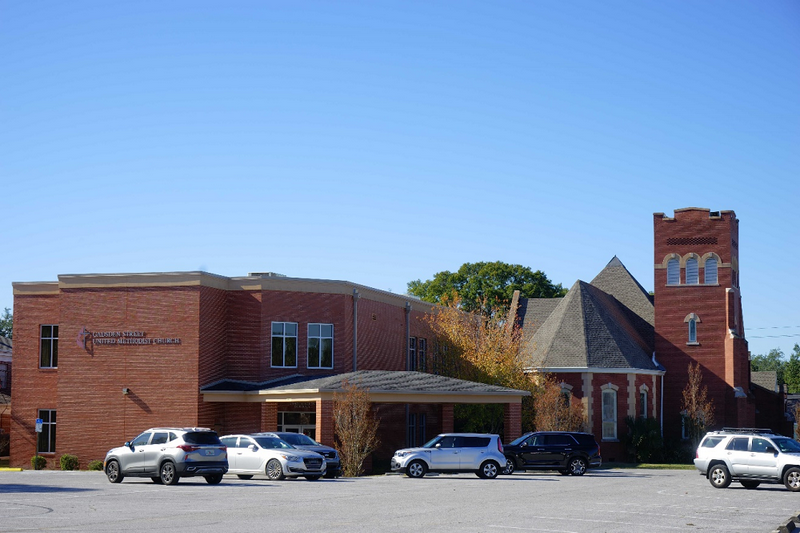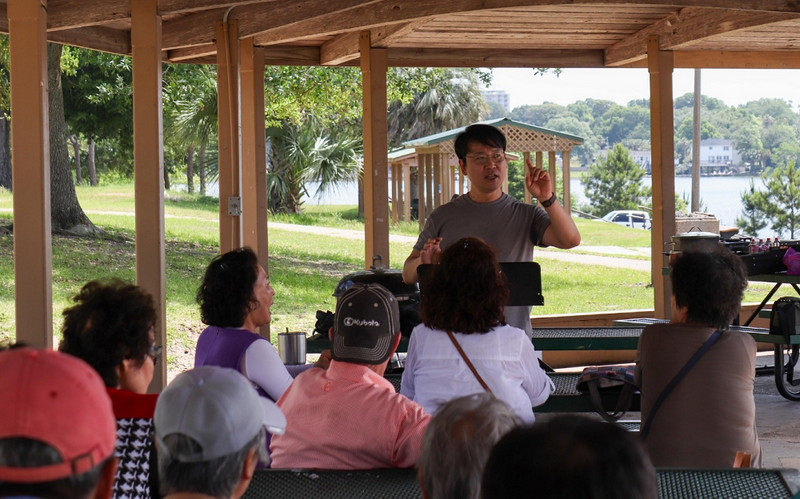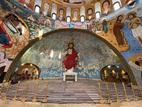Editor's note: During his time in Beijing, Yin Bobin, the founder of Beijing's Hope Garden, was long engaged in entrepreneurship and employment education for socially marginalized individuals struggling with addiction, dedicating himself to helping them reintegrate into mainstream society. Yin and his daughter, Li Huilin, recently participated in U.S. missional church activities. This article is an introduction of how a minority church in Pensacola practices being a missional church.
Author's note: The Missional Church Movement, which emerged globally in the 1990s, centers on transforming faith into tangible action through gospel proclamation and social service. As Chinese believers living in the United States, my family and I needed the support of a mother-tongue church due to our elder family members being ethnically Korean. Ultimately, we joined the Pensacola Korean Methodist Church. Despite its establishment in 2016, and with two existing Korean churches in the area, this church distinguished itself with its unique missional focus, becoming a spiritual hub for Korean expatriates and multicultural families.
This article documents how Pastor Hand Pyo Kim (김한표) and his entire church serve the diaspora and local community through concrete actions, offering valuable inspiration to churches worldwide.
I. Finding a Unique Mission in an Established Context
In 2014, Pastor Hand Pyo Kim, then serving a large Korean church in Ohio, visited Pensacola, Florida. During his visit, he learned about the lives and faith of the local Korean diaspora. Feeling strongly called by God; Pastor Kim relocated to Pensacola in January 2016. At that time, the small city already had two Korean churches: a 40-year-old Baptist church and a 25-year-old Presbyterian church. Establishing a new church in an area with established congregations was seen as a daunting task. Some skeptics predicted the new church wouldn't last six months. Yet, over eight years later, the Pensacola Korean Methodist Church continues to thrive.
Many immigrants in the United States, while capable of managing daily life in English, find that deeper intellectual and spiritual matters are best addressed in their native language. This need has led to the establishment of many immigrant churches, which also serve as support networks. Pastor Kim's church is one of these immigrant-focused congregations.
The Korean community in Pensacola includes early military families and later immigrants arriving for education or business. Some members were already Christians in Korea, others embraced faith after moving to the U.S, while some drifted away after participating for a time. Pastor Kim and his wife adopted an open and inclusive approach, focusing on underserved groups, particularly military families seeking cultural and spiritual support and Korean international college students.
"The Methodist Church has never taught salvation by works. Like the Bible says, we are justified by faith," Pastor Kim explained passionately. "John Wesley's first sermon was on 'Justification by Faith.'" While the Methodist Church is often associated with social service and charity work, Pastor Kim emphasizes that their actions are rooted in biblical principles and the command to love one's neighbor.
Studying Scripture deeply and living out the command to love one's neighbor is a non-negotiable principle for Pastor Kim.
II. Gospel Influence in Korean Association Activities
In 2023, with the support of the entire church, Elder Ha Jeong Gang successfully ran for president of the Korean Association of West Florida. This achievement highlighted the influence of Pensacola Korean Methodist Church within the Korean diaspora community and demonstrated how the church encourages its members to serve the broader Korean-American population.
The Korean Association provides services such as liaising with the South Korean consulate, organizing cultural events, and fostering mutual support among Korean-Americans. At many Korean Association events, Pastor Kim is invited to lead worship or offer prayers. These occasions not only bring spiritual energy to the events but also expose more people to the gospel. Many participants, encountering faith in this context, begin exploring Christianity and even join faith communities. The church's involvement in the Korean Association has turned it into a platform for spreading the gospel while expanding the church's missional reach.
III. Cultural Care Through Fellowship
Korean-style fellowship meals are a common tradition in Korean-American churches. At Pensacola Korean Methodist Church, careful cultural consideration and organization make these meals a vital way to connect members. The weekly post-worship meals are more than just dining together; they are a critical space for building relationships and easing homesickness.
As a Korean-Chinese family, we experienced the church's appreciation for cultural heritage through these meals. Older immigrants found comfort in familiar language and dishes, while younger Korean international college students built connections and intergenerational bonds through interactions with elders. This culturally sensitive fellowship practice makes the church an indispensable part of the diaspora's lives.
IV. Combining Spiritual Support with Practical Assistance
Pensacola Korean Methodist Church supports its members not only spiritually but also in practical matters. For instance, when my family first arrived in Pensacola without a car, we faced many challenges. Deacons such as Kim Youngkyun, Choi Youngdeok, and Kim Chayeong each took turns providing transportation for us to Sunday worship, morning prayers, and Bible study groups. Elder Ha Gyeong, Deacon Oh Insoon, and Deacon Lee Youngsook frequently offered us practical help, resolving many of our daily issues.
Pastor Kim coordinated church resources to ensure every member felt supported. This care not only served as a lifeline for immigrants but also exemplified the true meaning of a missional church.
V. Community Service and International Mission: Gospel Action Among the Diaspora
"I'm not opposed to building church facilities, but constructing buildings shouldn't be the ultimate mission of the church. Nor should strengthening church finances," Pastor Kim remarked.
While mutual aid among members reflects love and support, isolating oneself within the church's walls contradicts its purpose. Early on, Pastor Kim encouraged members to step out and care for the homeless. They distributed meals and offered prayers in a downtown park. Though the COVID-19 pandemic interrupted these efforts, the church has since joined the Bright Bridge Ministry to continue serving.
Although the church has fewer than 40 regular attendees on Sundays, it still allocates budgetary resources to support missions in Malaysia, Indonesia, and Canada, contributing at least $5,000 annually to mission work.
Through these actions, the church embodies the core missional spirit of "loving one's neighbor as oneself," extending the faith of the diaspora beyond church walls to broader societal and international spheres.
VI. Insights for Chinese Churches: Combining Mission with Purpose
The practices of Pensacola Korean Methodist Church offer valuable lessons for Chinese churches. How can a new church in a resource-rich area find its mission and purpose? This church demonstrates that by focusing on underserved groups and combining cultural recognition with practical support, a new path can be forged even in established contexts.
The worship and prayers at Korean Association events highlight the church's spiritual role in social service. Supporting believers' engagement in society and integrating faith into these activities transforms the church into both a spiritual home and a bridge for believers to integrate into society.
VII. Conclusion: From Spiritual Home to Social Beacon
Under Pastor Hanbyul Kim's leadership and with the efforts of its members, Pensacola Korean Methodist Church has found its unique mission in an area with existing church resources. It has become a spiritual and social lifeline for the diaspora. From supporting the election of the Korean Association president to leading prayers at events, from caring for the homeless to funding international missions, the church exemplifies the missional spirit through love and action.
As a firsthand witness, I deeply feel how this church connects the spiritual, cultural, and social dimensions through the gospel, bringing real change to both the diaspora and the community. This model reminds us that the church's power lies not only in preaching truth but also in demonstrating God's love through tangible actions.
Originally from the Christian Times
CCD edited and reprinted with permission













